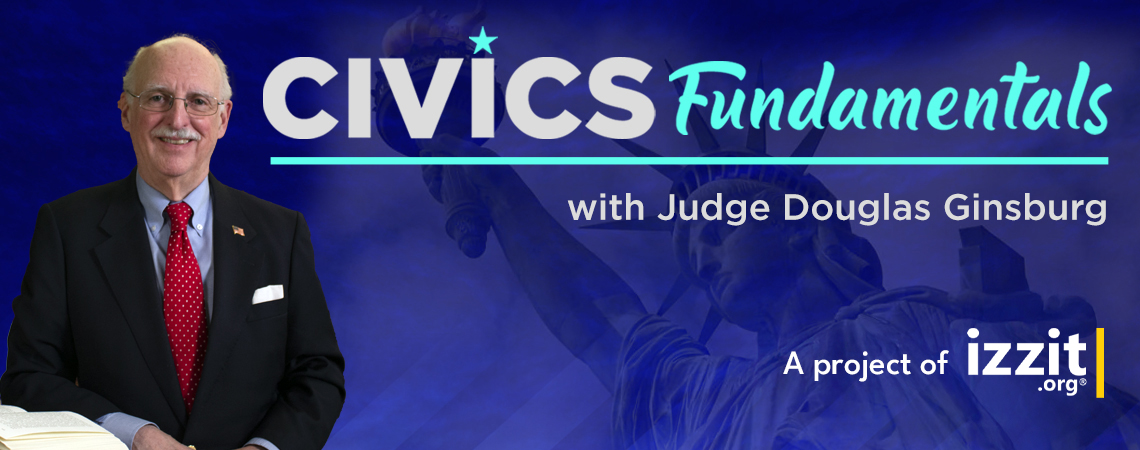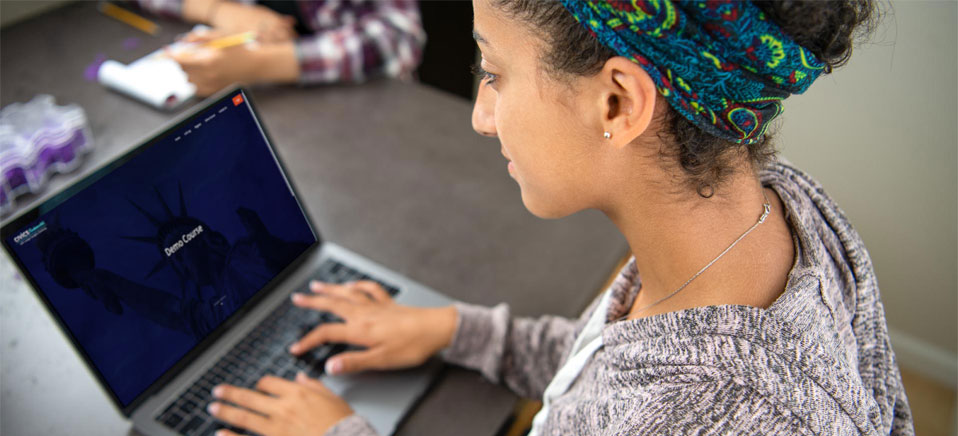
2 out of 3 Americans can’t pass the U.S. citizenship test —
Can you?
Civics Fundamentals is your FREE, standards-aligned video course to learn the civics knowledge every American should know.
Join host Judge Douglas Ginsburg on a journey through the fundamentals of US civics including American history, the Constitution, and the branches of government.
We’re strengthening civics education in America one student at a time.
Civics Fundamentals is a free program crafted with care and expertise to promote informed citizenship by meaningfully engaging, educating, and empowering all learners to enhance their civics education.
The course comprises a series of professionally produced two-minute videos from the host of the PBS series A More or Less Perfect Union with Judge Douglas Ginsburg. Each of the 100 video lessons is crafted to accompany the 100 questions from the U.S. Citizenship Test to gauge and improve your knowledge of the concepts presented.
These videos go beyond rote memorization, encouraging learners to discover the meaning and importance of the questions by exploring the “Why?” of U.S. civics.
The course enables educators to easily incorporate the videos and lessons into their existing curriculum and track student progress.
In addition to the videos, educators can access resources such as lesson plans, teacher guides, classroom activities, assessments, and more.
Learners come away with a deeper understanding of critical civics concepts and the knowledge they need to be informed and engaged citizens.
Our Purpose
Civics Fundamentals was developed to promote informed citizenship by meaningfully engaging, educating, and empowering all learners to enhance their civics education.
- A series of professionally produced two-minute videos cover each of the 100 test questions and include content from the PBS series A More or Less Perfect Union with Judge Ginsburg.
- Videos go beyond rote memorization, encouraging learners to discover the meaning and importance of the questions by exploring the “Why?”
- The course allows educators to easily incorporate the videos and lessons into their existing curriculum and track student progress.
- In addition to the videos, educators can access resources such as lesson plans, teacher guides, classroom activities, assessments and more.
- Learners come away with a deeper understanding of critical civics concepts and the knowledge they need to be informed and engaged citizens.
Can YOU Pass?
60% of Americans cannot pass this civics test that demonstrates a basic understanding of American history and how our government works. This is the same test that immigrants must take to become a naturalized citizen of the United States.

1. Register for Free
3. Take the Course
2. Take the Pretest
4. Take the Final Quiz
About your host: Judge Douglas Ginsburg
Judge Douglas Ginsburg is an American jurist and academic who serves as a senior judge on the United States Court of Appeals for the District of Columbia Circuit.
Judge Ginsburg is passionate about helping all current and aspiring Americans to understand the history and structure of the United States government.
That’s why he partnered with izzit.org to develop the Civics Fundamentals course to be a free, engaging, standards-aligned course to help all learners develop the foundational civics knowledge they need to be well-informed citizens.

About izzit.org
At izzit.org, we believe that education enhances the power of individuals to solve problems for themselves, their families, communities, and society at large.
To support this belief, we offer high-quality, no-cost educational materials designed to help all learners develop important problem-solving skills in critical thinking, civil discourse, and scientific methodologies.
About izzit.org
At izzit.org, we believe that education enhances the power of individuals to solve problems for themselves, their families, communities, and society at large.
To support this belief, we offer high-quality, no-cost educational materials designed to help all learners develop important problem-solving skills in critical thinking, civil discourse, and scientific methodologies.


